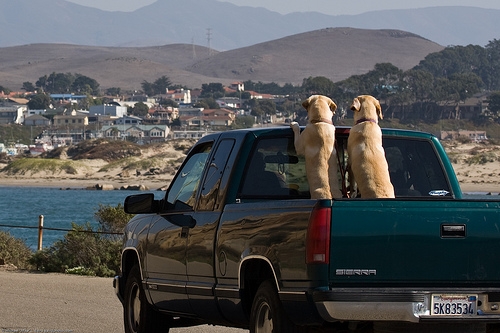
Gas tank problems are universal among all cars and trucks. Gas tanks on older vehicles are easy to repair, but become more complicated on newer vehicles that feature on-board computer sensors. Common problems with gas tanks are rust, fuel contamination and sensor issues. Gas tank repair can be hazardous. Vehicle owners are urged to use caution when performing repairs due to the presence of gas fumes.
Gas tank leaks are more likely the result of a rusting tank. Most rust occurs on the exterior of the tank under the straps holding the tank to the body frame. This is where moisture collects. If the damage is not too great, thorough removal of the rust and using gas tank filler sealing putty can solve the problem, according to gnttype.org.
Some late 1980's General Motors automobiles, including Buick Regals, are prone to having fuel return lines fracture at the gas tank. A spark or excessive heat underneath vehicle could cause a fire. A new fuel return pipe assembly should be installed.
Larger pickup trucks, such as some Ford F-250s, are equipped with dual fuel tanks. These vehicles may have fuel flowing from one tank to another due to pressure problems. This causes difficulty in starting because the pressure is insufficient to reach the engine. The tanks are equipped with a pair of inline check valves and a fuel pressure regulator to ensure fuel does not pass between the two tanks. But an inadequate fuel pump may not generate enough pressure to move the fuel properly, according to misterfixit.com.
Fuel contamination is another common gas tank problem. Symptoms of contamination may be rough idle, loss of power, stalling and premature fuel pump and fuel-injector failure. The gas tank should be removed from the vehicle and flushed of impurities.
Some 2005 Ford Mustangs have a design flaw that interferes with the ability to properly fill the gas tank. The fault prevents the gas tank from taking more than half a tank of fuel. The tank is also slow to fill and the gas station hose pump will repeatedly shut off. This is a problem common among other vehicles as well and is likely due to a faulty vapor venting system inside the tank.
Heavy-duty Ford trucks powered by diesel engines may have gas tanks in which the inner lining is flaking and clogging the fuel line, filter and pump. Ford has linked the problem to 5 percent or more biodiesel used in vehicles.
Although fuel sensors are generally not expensive to replace, some luxury and sports cars may require extra repair work. Some late-model Corvettes, for example, experience problems with the gas gauge indicating empty when the gas tank is full. This may be due to a faulty gas tank sensor that may require removing the vehicle's rear end to access the tank. Repairs could approach $2,000.